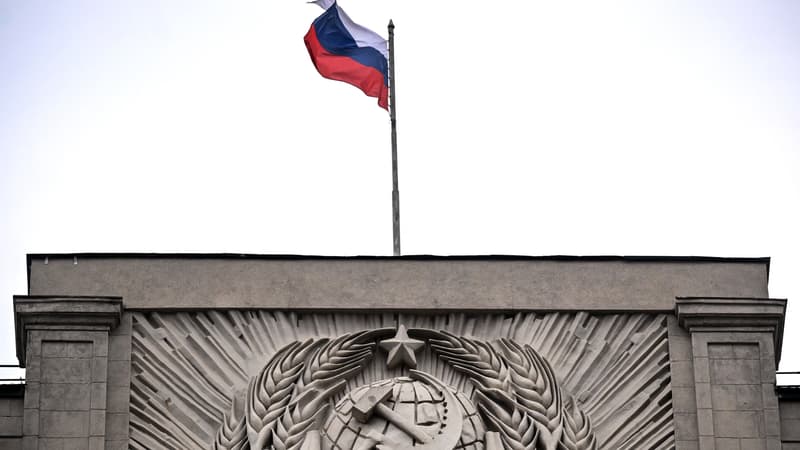In Russia, freedoms are being extinguished, one application at a time. For several months, the almost 100 million Russian WhatsApp users have been experiencing increasingly common connection problems. From one day to the next, it becomes impossible to make calls or send messages. Entire regions of the gigantic country are suddenly affected, isolated from the world and people cannot contact their loved ones through this medium.
WeChat as a model…
The problem is not technical, but political. Anton Goreklin, first vice-president of the information policy committee of the Duma, the Russian legislative assembly, indicated on Telegram that “Whatsapp should prepare to leave the Russian market,” Le Figaro reported last July. Messaging software is, after all, American, but for the moment and despite Donald Trump, the United States remains on the list of “hostile countries.”
But Russia, like nature, seems to abhor a vacuum, and since last March, without this having anything to do with chance, a new application offers a service similar to WhatsApp.
It’s called MAX and it’s developed by VKontakte, a Russian social media giant. An origin that, by itself, should have guaranteed him a bright future. In June, according to Interfax, a Russian news agency, MAX already had one million users. In August, according to the same source, the total number of registered users amounted to 18 million. But, from September 1, MAX is supposed to be installed by default on all new smartphones (and tablets) sold on the territory of the Russian Federation. Now it has 40 million users…
The Kremlin as godfather
A commercial tour de force for Russian Facebook? Not really, MAX has nothing to fear from the wrath of a local competition regulator. Because the messaging application has a model in mind, WeChat (Weixin, in its Chinese name), from Tencent. Since its launch in 2011, the latter has become a must-have in China. In addition to allowing you to communicate with your friends, it is also used to pay rent, purchases and bills, and is at the center of various administrative procedures. A kind of omnipresent center that the Chinese government evidently watches very closely.
True to its model, MAX integrates an intelligent chatbot, called GigaChat 2.0, which is capable of booking tickets or making bank transfers. True to its model, MAX is also and above all under the control of the Kremlin. Therefore, a large proportion of civil servants or employees of state conglomerates would be forced to use it, even in schools where parent and teacher focus groups would have been migrated to MAX.
But the Kremlin’s presence has other manifestations. From a financial point of view, VKontake, the company that publishes it, is owned by several Russian structures, including state-owned companies Gazprom and Rostec. In addition, its general director, Vladimir Kirienko, is the son of Sergei Kirienko, deputy head of the presidential administration and Vladimir Putin’s confidant.
“Intentional insecurity”
Furthermore, from a technological point of view, its servers are located in Russia, which means that all information stored there can be analyzed at any time by the secret services or the police.
Finally, its level of security is very relative since, unlike WhatsApp, it does not offer end-to-end encryption of communications, which guarantees that only interlocutors on both sides of the exchange can read it.
Forbes magazine also asked a security expert to analyze how MAX works. The conclusion of their work is clear: “MAX is not secure at all. There is no encryption, unless it is very well hidden, but I doubt it. Its insecurity is intentional, it has a purpose: to monitor its users.”
Therefore, we are not surprised to learn that the application is capable of locating in real time, in the background and with great precision, the smartphone on which it is installed.
A key part of a prison
In a Times article, a Russian journalist opposed to Vladimir Putin’s regime even believes that MAX is a key element in the construction of a “digital gulag.” No doubt with regret, he predicted that MAX “will be a sterile space where the authorities will have absolute control over the free time, motivations and thoughts of citizens.”
In a country where it is already prohibited to share, or even like, online content that the Kremlin has banned, where more than 420,000 sites have been blocked in 2024, digital freedom seems shaky.
After having long ignored the Internet, which in 2010 he considered “50% pornography,” Vladimir understood that if “the Internet is a CIA project,” as he stated in 2014, it can also become the tool that will allow control of a country at war and subject to its domination for a quarter of a century.
By controlling access to the Internet, by creating Russian and sovereign bubbles like so many prisons, it locks Russians in a little more every day under a blanket of digital lead. The Gulag 2.0 archipelago emerges before our eyes.
Source: BFM TV


